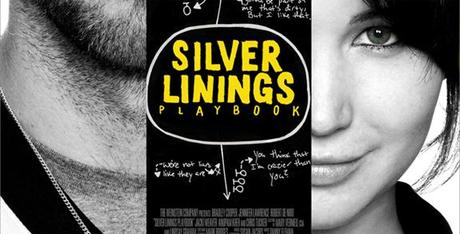
“Silver Linings Playbook” a fictional movie about the impact of mental illness on on a former teacher is nominated for eight Oscars. From the reviews I have read I suspect this is a very good movie and plan on seeing it soon. Many of those who actually suffer with mental illnesses that have seen it and commented about it, seem to feel the movie was entertaining and depictive of the struggles and losses associated with mental illness, but should of been more in depth in following the treatment and recovery story of the character.
However one may personally choose to critique this movie, I believe the movie highlighted some very important and helpful points for improving mental health treatment, and the quality of life for mental illness sufferers. These points were:
Late diagnosis of mental illness is often very damaging.
The importance of educating families, communities, teachers, police officers and our military on how to better identify a person that may be having mental health issues, so they can step in to start the chain of help.
The Importance of Early Diagnosis:
In the movie the character with mental illness is diagnosed with bipolar disorder only after it had become unmanageable. He ends up losing his house, his job, his wife, and ends up sentenced by the court to 8 months in a mental hospital for assaulting his wife’s lover. This depiction of loss, and extent of suffering, is not uncommon at all for those with mental illnesses. This is especially true for those who forego seeking treatment for their illnesses, ignore or deny them, and just try to adjust and cope with them.
A person with mental illness that gets early diagnosis and follows that with treatment, reduces the amount of harm they will experience, and accelerates their recovery. (NAMI) So it is very clear, that to truly help reduce the amount of suffering that ones mental illness will bring upon them, early diagnosis is vital. Yet according to the fourth edition of the Diagnostic and Statistical Manual of Mental Disorders only about sixty percent of people are being treated for their mental illnesses in any given year.
One of the reasons so many people go untreated is because of self-stigma or the stigma associated with being classified as mentally ill. Both men and women can struggle with this issue, but its one that men especially struggle with. When it comes to issues or challenges in their lives, from childhood most men have been taught to just deal with it, or suck it up. As result of this being ingrained in their very fiber, men often do the same when struck with a mental illness. To admit, let on to, or accept the weaknesses they are experiencing as result of the effects of their mental illnesses, can make them feel inept, or like weak and damaged goods.
Many others remain undiagnosed and untreated for their mental illnesses because of lack of availability or affordability of health care. In the U.S. where I live there are social programs that offer free health care to help the poorest of people and those with qualified disabilities. However, many working people not qualified for these programs, cannot afford company plans of insurance. Some jobs in the U.S. still do not even offer company insurance. Or if they do, they try and keep their employees under the qualifying amount of work hours necessary to receive it. I am hoping all of this will be resolved if and when the controversial Obama health care reform gets enacted.
In the meantime, many of the mentally ill in the U.S. because of the above mentioned issues, encounter severer issues in their lives as their illnesses continue to worsen.
The Importance of Educating all About Mental Illness:
The struggles and losses experienced by the mentally ill character in this movie would almost certainly of been much different if he had sought help once symptoms of his illness became evident. The same could possibly be said if someone along the way had intervened to stop his spiral into disaster.
Unfortunately, I can relate very well to this story line about suffering and loss. I say unfortunately, because of the suffering and loss I experienced as a direct result of my own self-stigma about my mental illness. I decided to just deal with it and deny it. I did not want to admit my illness, and as result with the passing of time it just progressively worsened.
I rarely disclosed how bad I was feeling or how much my illness was affecting me. I was avoiding and refusing to do anything about my mental illness, which also happens to be bipolar. Many people do this, and some do this because they fear they will be looked down upon by others.
Although I take full responsibility for delaying my treatment, it is also true that if someone close to me was educated enough to recognize the clear symptoms and dangers of my illness, then stepped in somehow in a kind but persistent way, maybe things would of been different.
That is why education about recognizing mental illness is so important. If they don’t know, how much can they help? We need to improve early recognition of mental illness, and intervention. By educating the community, families, teachers, religious leaders, military officials and police officers how to recognize a child or adult in crisis, much unnecessary suffering and loss can be averted. In the U.S. it appears we are moving in this direction with a new plan called Project AWARE. I hope it is fully implemented and carried out efficiently.
About Author: Gerald Bouthner is a Mental Health Advocate, Blogger, and Guest Writer on The Real Supermum Blog. Find out more about Gerald at The Challenges of Mental Illness or contact him via social media: Twitter

